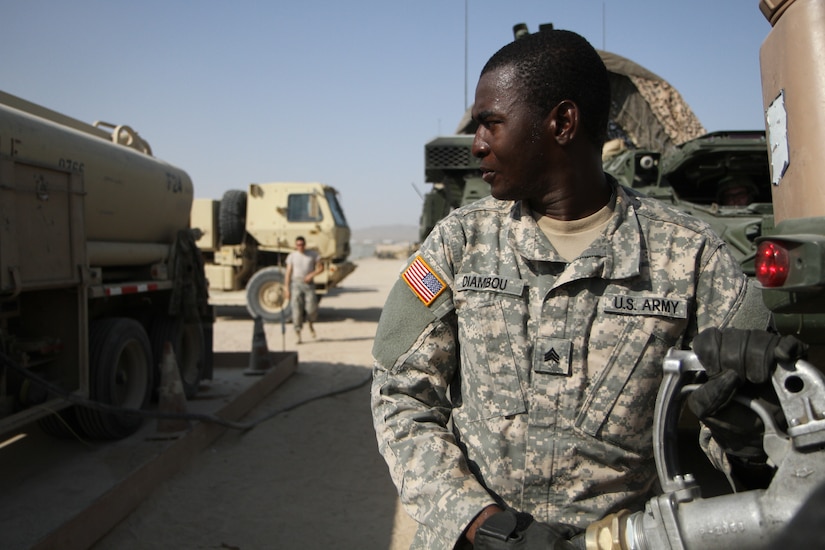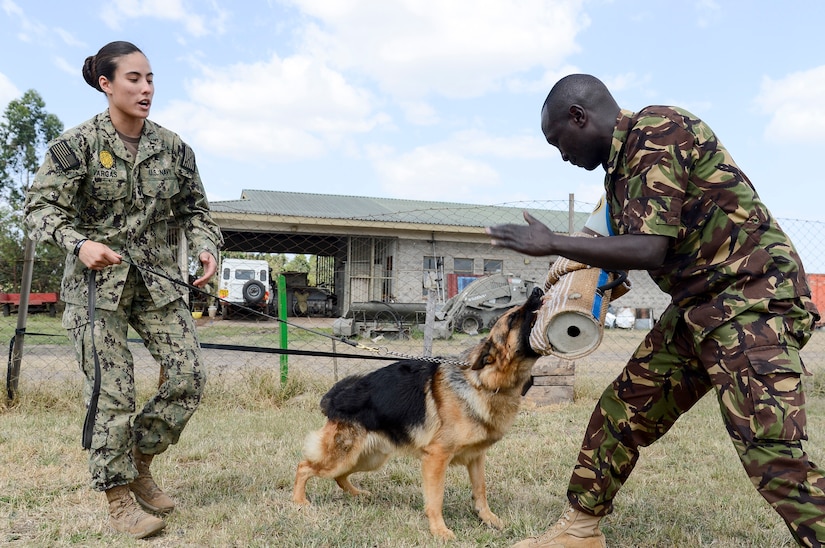By Army Sgt. Claire Charles, 109th Mobile Public Affairs
Detachment
FORT IRWIN, Calif. -- Army Sgt. Siaka Diambou was born in
Mali and immigrated to the United States eight years ago to seek an education
and provide a better life for his wife and daughter.
Now a motor transport operator for the Pennsylvania Army
National Guard’s 1067th Composite Truck Company, 213th Regional Support Group,
Diambou played a key role in his unit’s sustainment mission at the National
Training Center here.
The Fort Irwin National Training Center is the Army’s
premier training center. Soldiers train here to conduct counterinsurgency and
counterterrorism operations in desert environments. Complex scenarios test
every aspect of unit readiness, including solving social, ethical and moral
dilemmas presented by operating in civilian areas while facing near-peer
opposing forces and insurgent forces.
Ready to Train
To ensure the units assigned to the 213th Regional Support
group were properly equipped and ready to train, Diambou and his soldiers
received equipment from Marine Corps Logistics Base Barstow’s Yermo Annex,
located 35 miles south of Fort Irwin, and convoyed trucks and unloaded
supplies.
“I find my job very exciting and satisfying because I
transport key supplies, such as food, clothing, fuel and equipment, to the
units I am assigned,” he said.
Diambou said he not only enjoys his job, but has taken
advantage of the educational opportunities available to National Guardsmen.
He qualified for the National Guard’s Commercial Driver’s
License Program and enrolled at the Aviation Institute of Maintenance.
He plans to continue his military service and use his certification
as an aircraft technician in the aviation field.
“As a soldier,” Diambou said, “I get to meet interesting
people from all over the world, serve my country and make my education and
career dreams come true.”









